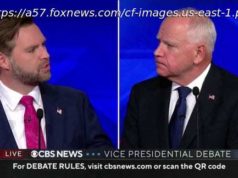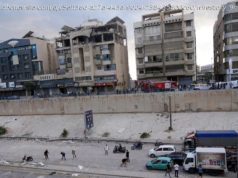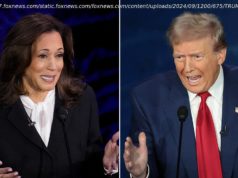Where Western executives fear to tread, Chinese companies will rush in
The disappearance of dissident Saudi Arabian journalist Jamal Khashoggi, and his alleged killing inside the Saudi consulate in Istanbul by a hit squad acting on orders from the highest levels of the royal family in Riyadh, could be a watershed moment for the country.
Over the last year, Western media have largely been full of praise for Saudi Arabia ’s young crown prince Mohammed bin Salman, hailing him as a bold reformer for permitting women to drive and allowing cinemas to reopen. When MbS, as the prince is known, visited the United States in March this year, politicians and business leaders queued up to meet him, and to have their photographs taken with the new face of Saudi moderation and modernity.
But in the weeks since Khashoggi vanished, and as details of his gruesome demise have emerged, Western commentators have changed their tune. No longer is MbS a brave and liberal reformer, determined to bring the Saudi economy and society into the 21st century. The 33-year-old prince is now a repressive and brutal autocrat in the very worst tradition of Arab despots, determined to tolerate neither dissent nor criticism of his rule. This change of heart means far more than an end to photo opportunities for MbS with the likes of Mark Zuckerberg. It is likely to have far-reaching consequences for Western companies, the Saudi economy, and quite possibly for businesses in Asia.
It may not seem so at first. With US president Donald Trump reluctant to criticise the Saudi regime and emphasising the country’s importance as a buyer of US exports – largely weaponry – it might seem the whole affair will blow over with few lasting effects.
But that would be to underestimate the influence of vocal sectors of public opinion in the age of social media. Much as no one will ever again bankroll a movie produced by Harvey Weinstein, so it is hard to imagine high-profile Western business leaders accepting future investments of Saudi state capital, at least as long as MbS remains the effective head of government in Riyadh. Nor will they be lining up to invest their shareholders’ money in the Saudi economy.
In recent days, a parade of Western business executives – including the bosses of JP Morgan, HSBC, Standard Chartered, the London Stock Exchange, Uber and Virgin – have pulled out of an investment conference in Riyadh this week dubbed “Davos in the desert”.
Despite the lucrative gains to be made from buttering up the Saudi government, the reputational risk of being seen to condone the Riyadh regime in the aftermath of Khashoggi’s disappearance is just too great to stomach.
Nevertheless, their decisions are likely to prove painful. One of the no-shows in Riyadh will be Stephen Schwarzman, the chief executive of private equity giant Blackstone, to which the Saudi government has pledged US$20 billion for its US infrastructure fund. How much of that cash will now be invested has to be in doubt.
Similarly, Tesla chief executive Elon Musk must be questioning whether Saudi investment in his cash-burning electric-car maker will now do more harm than good. And Masayoshi Son, the boss of Softbank, will be asking how difficult it will now be to do deals for his Vision Fund, which is largely funded with Saudi capital.
In short, if they can no longer rely on the robust risk appetite of Saudi state investors, many cash-devouring Western technology companies will be wondering whether their ambitious growth plans are still sustainable.
It cuts the other way, too. In the past two years, the Saudi government has laid out a grand scheme called “Vision 2030” to transform Saudi Arabia’s economy, weaning it away from dependence on oil revenues and instead nurturing the growth of a vigorous and enterprising private sector.
The challenge is enormous. Today, relatively few Saudi citizens work, and of those that do, most work in the state sector. As a result, in recent years some 80 per cent of Saudi households’ income has come from the government, either in the form of public sector wages or as welfare payments.
Even with its vast oil revenues, Saudi Arabia’s state finances are suffering. With the price of oil below US$100 a barrel, Riyadh has run a budget deficit for the past three years. But that’s nothing. Over the next decade, an estimated 4.5 million young Saudis will enter the labour market, almost doubling the size of the domestic workforce. According to consultancy McKinsey, even if Riyadh were to expel its vast legion of low-skilled foreign workers and replace them with young Saudis, it would at most create only three million jobs for locals. The unemployment rate among Saudis would still climb to 20 per cent.
To avoid fiscal ruin and social instability, Saudi Arabia needs to create new jobs for its citizens at a blistering rate – three times as fast as during the boom years of 2003-2013. Simply pouring state oil revenues into long-term investments won’t do the trick. Riyadh has tried that before, investing US$450 billion in education, health and infrastructure during the oil boom. The new jobs the country needs can only come from rapid growth in the private sector, and that means bringing in foreign private capital and know-how.
But if the Saudi regime is now too toxic for Western companies to be seen to be doing business there, Riyadh will have to look elsewhere for the investment and expertise it so desperately needs. The obvious place to turn is to East Asia, and to China in particular. China has vast sums of capital it wants to recycle abroad, formidable domestic companies looking to expand internationally, and little squeamishness about how regimes choose to treat their dissidents.
In years to come, it may well be that the disappearance of Jamal Khashoggi will be seen as a crucial step in distancing the Saudi regime from its traditional backers in the West, and in forging closer economic and political alliances in Asia, and especially with China. After Khashoggi, Riyadh might be beyond the pale as far as Western chief executives are concerned. That’s unlikely to be the case for their Chinese counterparts.






